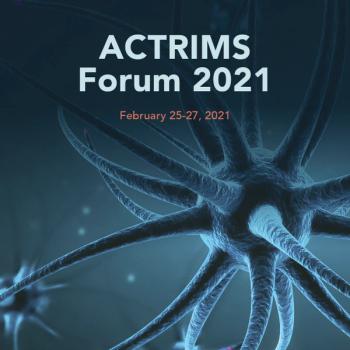
Avadel’s investigational therapy for excessive daytime sleepiness and cataplexy in narcolepsy has an action date set for October 15, 2021.

Matt Hoffman, Editorial Director for NeurologyLive, has covered medical news for MJH Life Sciences, NeurologyLive’s parent company, since 2017. He executive produces the NeurologyLive Mind Moments® podcast, and hosted the Medical World News show Deep Dive. Follow him on Twitter @byMattHoffman or email him at [email protected]

Avadel’s investigational therapy for excessive daytime sleepiness and cataplexy in narcolepsy has an action date set for October 15, 2021.

The headset system from Neurolief was approved based on the findings of a clinical trial of 131 patients with migraine who utilized the device in treatment sessions of up to 1 hour.

Clene Nanomedicine’s nanocatalyst agent CNM-Au8 displayed significant improvements in patients with EDSS scores of 2.0 or higher compared to those with EDSS scores of 1.5 or lower.

Data from a pair of posters suggest that cognition, fatigue, and depression all impact social activity limitations in people with MS, rather than walking impairment alone.

"Mind Moments," a podcast from NeurologyLive, brings you an exclusive interview with Jennifer Martin, PhD.

The antisense oligonucleotide casimersen will be branded as Amondys 45 and is currently being assessed in the ESSENCE phase 3 clinical trial (NCT02500381).

Ahead of sessions kicking off on February 25, the ACTRIMS committee offered a look into what data, plenary talks, and developments are set to be presented at the upcoming ACTRIMS Forum 2021.

The director of Neurology and the Memory and Aging Program at Butler Hospital and principal investigator in the aducanumab clinical trial program discussed the investigational agent and the current landscape of care.

A pair of migraine experts explores several topics in the acute treatment of migraine, including recent therapeutic innovations.

Siponimod (Mayzent; Novartis) improved Symbol Digit Modalities Test scores in patients at 12, 18, and 24 months compared to placebo.

The DMD treatment pipeline boasts a number of therapeutics with varying mechanisms of action and delivery systems, pointing to a promising future for treatment.

The calcium, magnesium, potassium, and sodium oxybates solution, marketed as Xywav, was approved for cataplexy and daytime sleepiness in narcolepsy in July 2020.

ElectroCore announced that the expanded indication, noting that gammaCore is now the only acute and preventive option approved for both adult and adolescent migraine.

With promising data presented at WORLDSymposium 2021 and a PDUFA date looming in May, investigator Priya S. Kishnani, MD, offered her insight on Sanofi’s investigational therapy.

The data revealed some of the more common and problematic symptoms, challenges, and comorbidities that persist for these individuals despite care.

Data presented at WORLDSymposium 2021 suggest that the Sanofi enzyme replacement therapy is effective and safe compared to the company’s other agent, alglucosidase alfa.

"Mind Moments," a podcast from NeurologyLive, brings you an exclusive conversation with Scott Perry, MD; Orrin Devinsky, MD; and Tracy Salazar, PhD.

Data from a small study showed patients experienced significant improvements in MDS-UPDRS III scores after 4 months of treatment with single-hemisphere FUS.

Wildon Farwell, MD, MPH, shed some light on the ongoing phase 4 trial and what clinical insights might be gleaned from the data.

Study results suggest that fewer than 10% of the more than 2000 migraine episodes analyzed were associated with increased levels of perceived stress.

The Cassava Sciences agent showed 6-month improvements in both ADAS-Cog and NPI scores, and a phase 3 trial is expected to begin in late 2021.

Neurocrine Biosciences and Voyager Therapeutics have terminated the Parkinson disease portion of their partnership, ending development for VY-AADC, also known as NBIb-1817.

After Theranica’s remote electrical neuromodulation was approved for those aged 12 years and older with migraine, study investigator Jennifer McVige, MD, MA, shared her insight.

The investigational agent developed by Biogen and Eisai is now expected to receive regulatory review by June 7, 2021.

"Mind Moments," a podcast from NeurologyLive, brings you an exclusive conversation between an expert neurologist, psychologist, patient, and care partner on various facets of multiple sclerosis.

Rafael Carbunaru, PhD, MSc, vice president, research and development, Neuromodulation, Boston Scientific, discussed the system’s recent FDA approval.

This fourth-generation system since 2012 is indicated as adjunctive therapy for stimulation of the subthalamic nucleus and internal globus pallidus to treat Parkinson symptoms.

Maha Radhakrishnan, MD, the Group SVP and chief medical officer at Biogen, discussed the collaborative study between Biogen and Apple that’s expected to kick off later this year.

"Mind Moments," a podcast from NeurologyLive, brings you an exclusive interview with Jacqueline French, MD.

The investigation identified 13 novel and significant associations with cerebrovascular disease and transient cerebral ischemia.